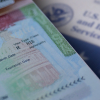
Since antiquity, humans like birds of the same feather, flock together. A case in point is when Jacob of the Bible and his clan were settled in the land of Goshen in Misri of old by the Pharaoh. You get the gist.
Immigrants from rural areas to towns and cities also tend to settle where their village mates have settled and create their own villages in the said urban areas replete with traditions imported from the rural areas. Check around Nairobi for evidence of this.
It is therefore no wonder that when a Kenyan, or any other immigrant, crosses the pond; there is a very high possibility of looking for his or her village mates in the West.
The good in such an arrangement is obvious. The newcomer will be shielded from the vagaries that accompany the process of immigrating. Believe you me; moving out of one’s comfort zone to settle thousands of miles away in land unknown is one emotional roller coaster that shakes a new immigrant to the core.
Therefore it is comforting to move in to a new place and find people who share your language, eat your food, dance your music, speak like you do, worship like you and have many other similarities with you. The stress to acculturate to the new culture is reduced significantly, providing a soft landing in a foreign land.
Having said that, it is also not surprising that a new immigrant, having settled with “familiar†people, is also expected to align themselves with members of his or her enclave.
This will include adherence to the political divides back in the homeland. No wonder the Kenyan Diaspora is as polarized politically as their tribesmen and women back home. In the comfort of their Western homes, the Diaspora was accused of fanning tribal hatred during the 2008 PEV using the internet as the weapon of choice.
Due to the numerous enclaves, the Kenya Diaspora has a plethora of associations and organizations purporting to speak on behalf of the rest. Without singularity of purpose, the numerous organizations can make noise from here to Timbuktu and no government will pay attention.
Estimated to be 3 million strong and with the advantage of a stronger currency, international exposure, and well educated, the Kenya Diaspora should have been the 48th County yesterday. But the naiveté of the succeeding Kenya governments with regards to the potential the Kenya Diaspora has is pitiable.
Developing countries that realized the importance of their Diaspora are today on their way to the league of emerging economies. These include China, India, Singapore, Malaysia, South Korea, India, and Vietnam. Haiti has a fully-fledged Ministry of Haitians Abroad. The official Haitian government policy is that the nation of Haiti exists where a Haitian is settled anywhere in the world.
The Kenyan Diaspora is a long way from being engaged by the Kenya government to bring any meaningful change in the homeland. Maybe the first step will have to be taken by the Kenyan Diaspora forming a united front. But will tribal and political myopia allow? Only time will tell.
By Peter Gaitho | babaashley2@gmail.com





Comments
Despite the change of address
Permalink
Despite the change of address the tribal hatred is imported and frequent chastizement of the village folks as lazy and ready with a begging bowl does not help, we are stronger when united and willing to uplift those left behind, only then can we hold the government of the day to account.
Those of us who were born and
Permalink
Those of us who were born and raised in very cosmopolitan neighborhoods in Kenya (myself Nairobi's Eastlands) knew about tribalism but could not ingest it simply coz everyone around us was from a different ethnic background and we had to interact as a community. From nursery school, you grew knowing your best friend was a Owino (I still remember Stanlaus Owino at that tender age of 4/5 yrs) or whatevr other name from another community. Gradually, you sincerely forgot, and I mean really forgetting that you were KipKorir or Ochi or Kama or Hamisi. But when I crossed the pond, I was flabbergasted by fellow Kenyans who cannot, in any way, commune with folks from other communities. I have met Kikuyus who will not entertain or interact with Luos and vice versa. In one incident, folks from one of these communities couldn't attend a function coz members of the other community were present in "big" numbers! The animosity between these two is almost palpable. It really shocks me and I have chosen to remain close to "myself". My observation is that most of our people are still living in the 1850's when it comes to treating those who are different from ourselves and I don't really think this will end un the next 50 or so years
Well written. If there is on
Permalink
Well written. If there is on thing that Julius Nyerere of Tanzania will be credited for, its abolishing the tribal identity and supplanting it with a national identity. He did this by cleverly breaking the generation continuity. Children were educated in diverse locations. high school students from the north of the country found themselves attanding schools either in the south east or west.This exposed them to different communities, cultures, and religion. The children from these diverse backgrounds in turn grew into a new well integrated community called Tanganyika and later Tanzania. While Tanzania did not have a vibrant economy, ujamaa, it concentrated on the foundation of a nation which is nationality, patriotism and citizenship. Somebody once remarked to me that bacause of that, whenTZ finally gets its economy moving, it will rise as one, and Kenya will be left in the dust. While Kenya is now an $80.9 billion economy, TZ has caught up to $80.2 billion. I think he was right.
In contrast, Jomo Kenyatta implemented a policy whose legacy will be debated for a long time. His postings of government employees in various parts of the country was only a half hearted attempt at integratting the communities that make up Kenya..
Also, the inequitable nature of these postings benefited some communities over others. Resettling communities was another issue that has remained very controversial and has now been cited as the single major grievance related to ethnic tension, among others. His administrations policies may have contributed to two major failures; 1. By not breaking the generation (i.e remove the children from their familiar ancestral, or tribal influence, and expose them to other communitues early in their life), the country lost an opportunity to form their young minds into citizens of Kenya, as opposed to the 'fill in your tribe of choice' who lives in a state called Kenya. 2. By blatantly favoring certain communities and marginalizing others, deep rooted suspicions and stereotypes were nurtured and cemented in the people's minds.
Instead of changing course, Moi followed in the footsteps, nyayo, of his predecessor only this time it was for the benefit of 'his people'. This set in stone the culture of 'it is our turn to eat'. We had divisional, district, provincial and national schools. This all but guaranteed that a child born in Central would most probably spend his/her entire life in Central. There are many Kikuyus who will never see, interact or know a Turkana child ever and vise vesre. It is so bad that some of them cannot even speak fluent swahili, supposedly the national language. Other provinces would suffer similar fates so much that they do not even know where 'Kenya is'. It is no wonder therefore that tribalism these days is much more extremist and pure! What does a Luo who has never been to Central know of a kikuyu other than the negative stereotype he has been fed all his life? This goes to all Kenyans not just Luos and Kikuyus.
The new devolved system may even excarbate this further. It further purifies the communities, such that there will now be 'outsiders' in these majority community counties! To even pretend that this is not the case is a task in mind bending gymnastics. How the people who drafted the constitution did not see this is mind-boggling indeed.
If Kenya is ever to step away from the brink of break up and embrace nationality, tribal barriers will need to be delibarately broken very early on in our childrens minds. government should pay to educate children all over the country. A mandatory service of two years either in the military or a youth service (not the Moi, Kenyatta political type) based on service to the country in various parts within the borders e.g Moyale, Lamu, Kisumu.etc will force exposure and interaction to different communities and the challenges facing them. They will be forced to learn their languages in order to communicate. A kikuyu posted and serving in Turkana for 6 months will learn about who Kenyans (the turkana) really are. A Turkana serving in Mombasa will see and appreciate the Swahili community. A Kalenjin serving in a hospital somewhere in Nyeri will know his fellow Kenyans in Nyeri. The next 6 months of their 2 year service will be a deployment to another part of the country and so on i.e Let Kenyans meet, interact, serve and live with each other. This will inspire patriotism, citizenship wiser leadership among these youths. Their backgrounds will be rich in culture and love of Kenya, based on true familiarity with the country and its people.
Nice and thoughtful article;
Permalink
Nice and thoughtful article; the later part of it is really spot-on - we really need a comprehensive national youth service involving ALL Kenyan youths - rich and poor alike
Add new comment